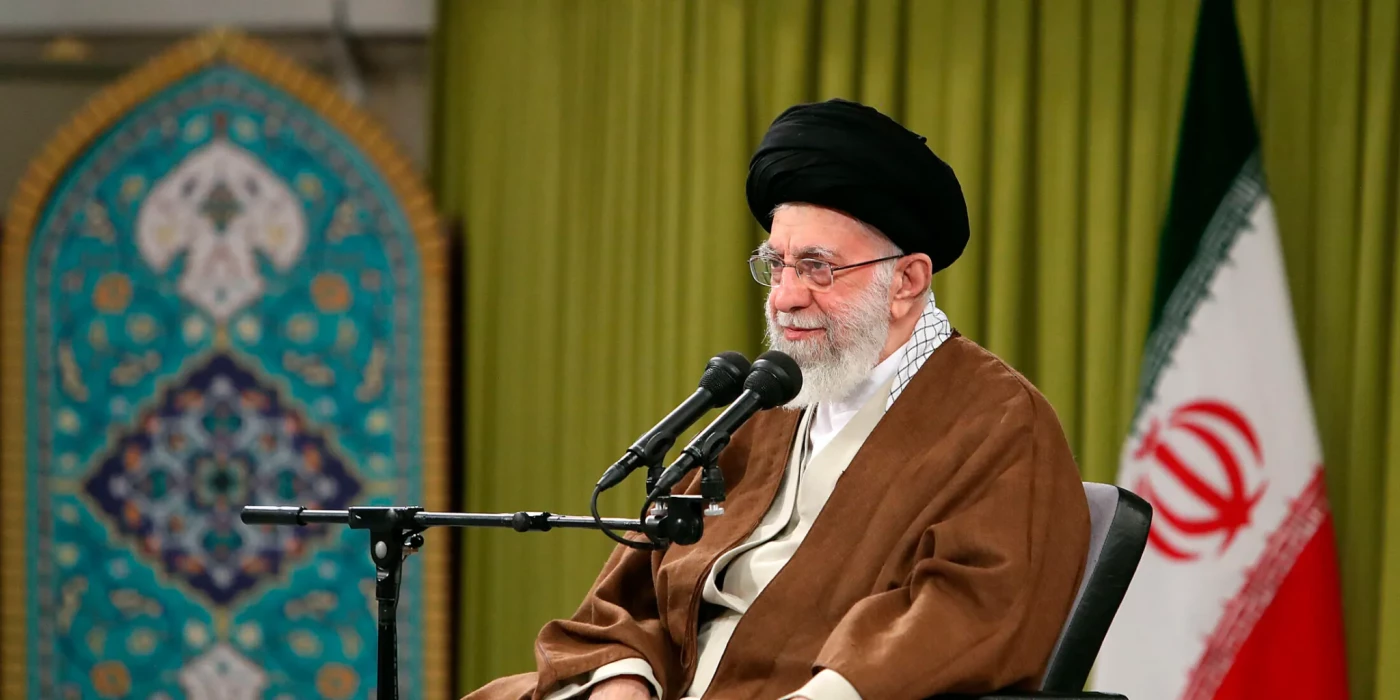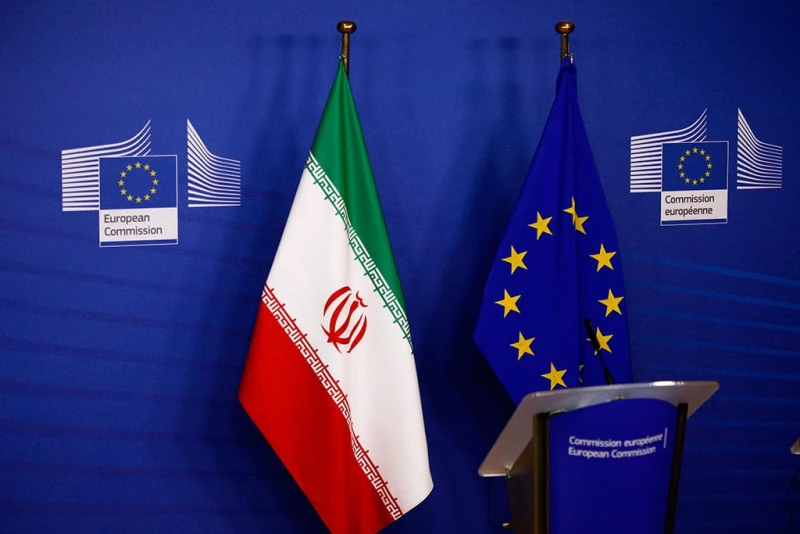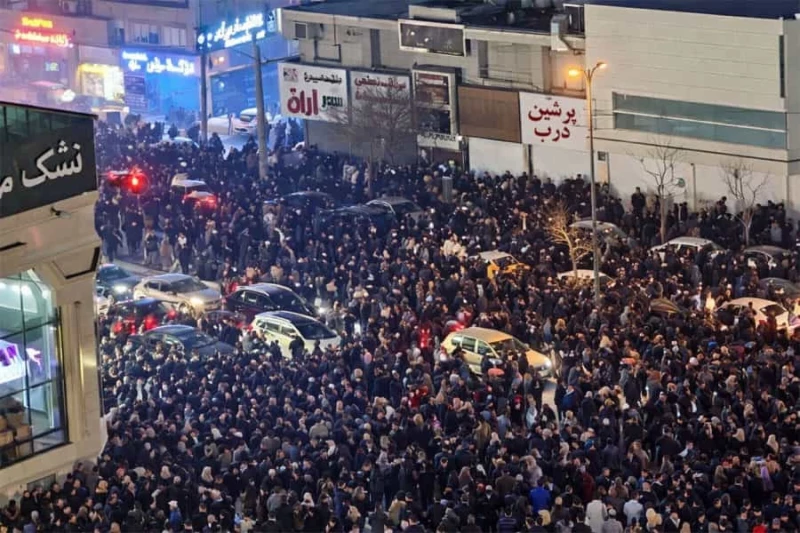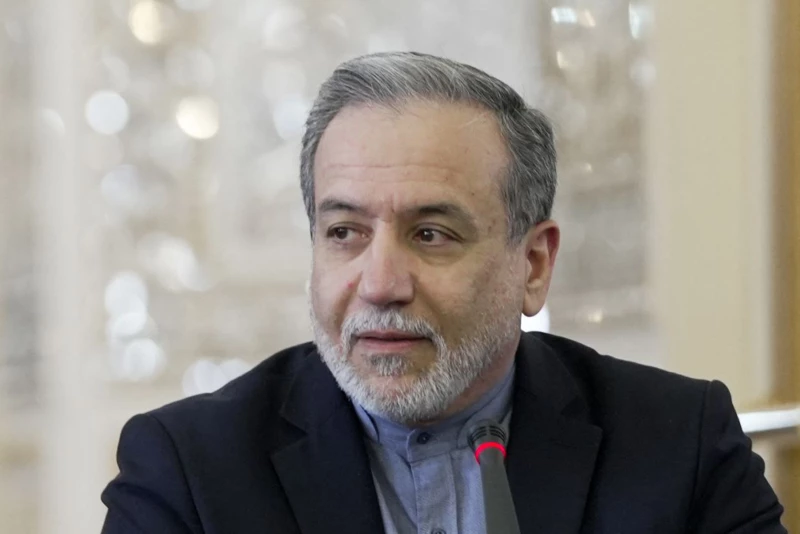ERBIL, Kurdistan Region of Iraq – Iran’s Supreme Leader Ayatollah Ali Khamenei said Tuesday that he does not think nuclear talks with the US will “lead to any result” during a speech at a ceremony commemorating former Iranian President Ebrahim Raisi.
“We also do not think it will lead to a result now. We do not know what will happen,” Khamenei said of their negotiations with Washington, warning their American interlocutors that “saying that ‘we do not allow Iran to enrich [uranium]’ is an excessive mistake.”
“No one is waiting for permissions from this or that person,” the Ayatollah said. “The Islamic Republic has its own policies and methods, and it pursues its own path,” Khamenei asserted, warning the American side of the negotiations to “try not to speak nonsense.”
Tehran and Washington have come face-to-face four times thus far since April to address their differences around Iran’s nuclear enrichment, marking the first time the two sides have held talks around the subject since US President Donald Trump withdrew from a landmark deal in 2018 between the two adversaries.
“I will explain to the Iranian nation the reason why they focus on enrichment — why the Western and American sides and others insist so much that there should be no enrichment in Iran,” the supreme leader further noted. “God willing, I will explain these things on another occasion to the Iranian nation so they understand what the other side’s intention is.”
Contrary to Khamenei’s remarks, Trump said on Thursday during his Gulf tour in Qatar that Iran has “sort of” agreed to their terms and conditions.
Dr. Michele Gaietta, a research consultant for the Joint Research Centre of the European Commission on nuclear-related projects, told The New Region how the divide between Khamenei's pessimism and the positivity expressed by other Iranian officials highlights the "divergent interests" of the different elements of the Tehran authorities, noting in particular the domestic pressures faced by Iranian President Masoud Pezeshkian amid a poor economic situation and expectations to deliver in the first year of his term.
Gaietta affirmed that, while a short-term deal may be possible and indeed his "expectations for reaching a deal are much higher than a few months ago," a longer-term accord may prove challenging given the red lines of Khamenei and other enduring bulwarks of the Iranian government.
Iran has repeatedly stressed their unwillingness to abandon their “hard-earned” nuclear enrichment program and reiterated their right as a Non-Proliferation Treaty (NPT) member to practice peaceful nuclear enrichment while denying claims of developing nuclear weapons.
Washington and Western powers have sought robust assurances that Iran is not pursuing nuclear weapons, while Tehran maintains that its nuclear program is solely for peaceful purposes and that it has no plans to develop nuclear weapons.
Trump, during his first presidential term in 2018, walked away from a landmark nuclear deal with Iran, which was introduced three years earlier in 2015 by his predecessor Barack Obama. Known as the Joint Comprehensive Plan of Action (JCPOA), the deal provided sanctions relief to Iran in exchange for the placement of curbs on Iran’s nuclear program.



 Facebook
Facebook
 LinkedIn
LinkedIn
 Telegram
Telegram
 X
X


